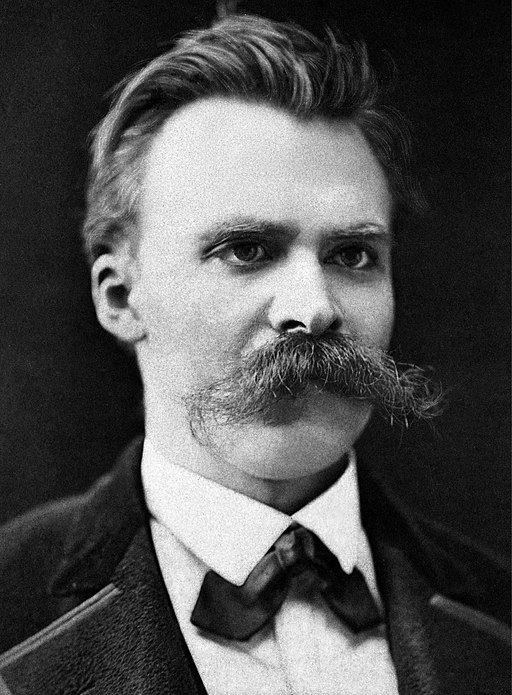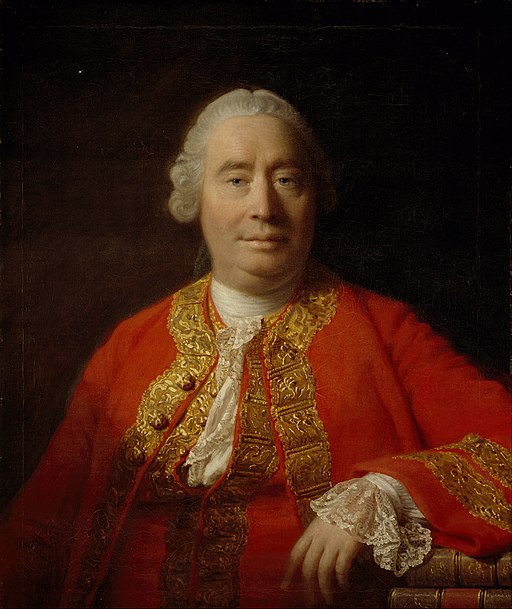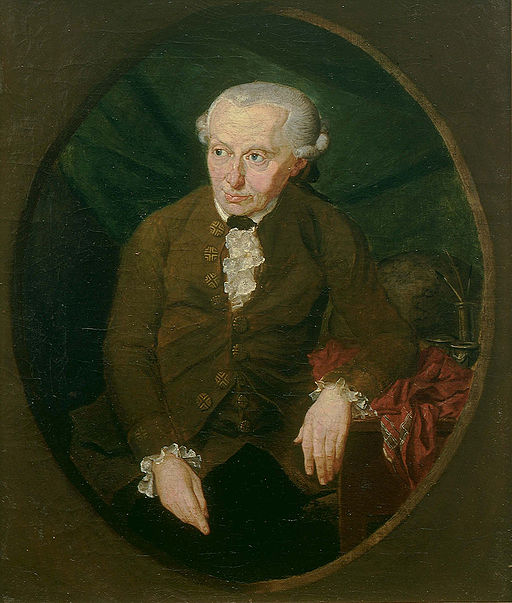Contemporary philosophy is the present period of Western philosophy that begins in the early 20th century with the rise of philosophical professionalism (Britannica, 2021). That is when the process of having norms of conduct and qualifications to be accepted as a member of a professional body or league is established.
In this paper, I will make a brief philosophical review and commentary on the central focus of the philosophy of the following selected contemporary philosophers, namely, Friedrich Nietzsche, Jean-Paul Charles Aymard Sartre, Georg Wilhelm Friedrich Hegel, Karl Heinrich Marx, David Hume, and Immanuel Kant, respectively.
Friedrich Nietzsche

He declares that “god is dead” suggesting every culture in society abandons the Christian faith and religious dogma. He claims that such faith and dogma are barriers toward personal empowerment—the sense of self-actualization to maximize what is capable of the very being of humans.
Existentialism is Nietzsche’s central philosophy. It emphasizes human beings’ existential aspects—growth and purpose of living totally—abandoning the concept of divine interventions and faith in god. Nietzsche argues against the foundational approaches of good and evil as he believed that the concept of heaven remains a concept, an idea, a made-up idea after all—a fiction. He also argues that absolute values do not exist and that their evolution in some other respects, Nietzsche does not specifically point it out, shall rather be viewed through the lens of another respect or means.
In other words, he needs to progress from his beliefs in the existentialist point of view being caught off guard that what existentialists do believe after all is a limited, myopic philosophy.
Nietzsche’s The Antichrist is bleeding with critical arguments against Christianity positing that it is fundamentally anti-life. He furthers it by criticizing its perceived values toward life as discouraging and threatening to the existential being of everyone’s life. From my point of view, Nietzsche hated Christianity and he even insulted Jesus by citing that he must not know anybody else Christian except the one who died on the cross—from which, others see that bluff as Nietzsche’s act of acceptance—which is not.
Nobody would dare to believe the impossibility while maintaining to accept that possibility does exist. That’s absurd—the only word I could afford to think to describe Nietzsche’s whole philosophy, including his “overman” concept that although possible, would annihilate his existentialist philosophy.
The concept of overman as what he describes both literally and symbolically entails transcendental process and divine intervention, which encompasses the holistic concept of Christianity, Buddhism, Hinduism, and other religions that either wholly or partly contemplates divinity, Christianity, and otherworldly domains that certainly existentialist such Nietzsche is just too obstinate to believe it.
Jean-Paul Charles Aymard Sartre

He is more widely known for his 1946 work Existentialism is a Humanism. Sartre believes that existence precedes essence which means owing to oneself to decide one’s purpose in life. Although the concept appears true to anyone else with a normal grasp of how life on Earth is perceived, same with other existentialists’ point of view, the concept is replete with egregious errors by looking even through the lens of perceived reality in the physical domain.
Human beings like Sartre and the rest of you find life in a teacher-pupil sphere of perspective, where everything that draws from life itself is a learning experience and a deciding opportunity to embark on what makes life to live in the fullest—a perspective of the paragon of lies and misplaced prejudice taught in schools and by society, adopted and lived by indoctrinated humans such a class you are.
Life and existence, after all, are not the domain for philosophy to work on it. How your perceived philosophy works in this world to understand better about life and existence and society and human being and all creatures seen and unseen is not the work of philosophy at all, not even its domain to even perceive it much more to understand about it. Rather, it is the work of the dictate of the collective us, the pure mind resonating from space to space, time to time, without barriers defying both possibilities and impossibilities known to man.
Philosophy has its specific meaning outside the etymological-historical definition so does the working of life and existence in understanding it the most exact way human beings want it to understand. However, the term has not yet been born in the dictionaries of the world not even in the conceptual realm of every great mind that ever lived.
And whatever thought that perceives the world as it is, including those thoughts from the perceived great minds in the field of Philosophy who think the same, relative, adjacent, or in connection with thoughts perceived by existentialists’ prerogatives, without exclusivity, are meant to fail totally in time.
Furthermore, Sartre posits that essence is a thing human beings shall obtain or rather invent—an absurd idea in all respects not to account for the relative and inexact meaning of essence concerning the existential aspects of human beings. Sartre must be confused, otherwise, his mind—the intellect of the very human mental faculty—speaks for himself.
Another thing that puts the state of Sartre’s core of philosophy into a state of reggae is his famous declaration that human beings are meant to be free, to be responsible solely for everything at their disposal. In his words, “Man is condemned to be free; because once thrown into the world, he is responsible for everything he does. It is up to you to give [life] a meaning.” At the first glance, the declaration appears truistic.
Most of you certainly would agree with him saying that. However, on a deeper level of comprehension, absurdity begins when taken in the context of his “god is dead” philosophy. Like reggae, Sartre’s state of mind toward his understanding of life and existence is a mixture of confusion and affirmation while adjusting his rhythm of belief in submission to destiny and acceptance that there is an invisible force or being that is constantly in motion to intervene every beat of the way.
Existentialists like Sartre must leave the room quietly not to mention his defective concept of nothingness, which retaliates the very characteristic of every being capable to change. If nothingness is to be construed by a subjective case, there would be no atoms that make up the very Sartre we knew today, yesterday, and tomorrow.
Georg Wilhelm Friedrich Hegel

Widely known for his Hegelian dialectic—an approach of looking into things by carefully considering ideas from thesis to antithesis and their juxtaposition to form a synthesis all-in-one based on reasons. Hence, Georg Wilhelm Friedrich Hegel’s philosophy is centrally based on reason, a brand of philosophy called rationalism.
For Hegel, a rational approach to things and ideas of concern is what the world’s domains are all about. In other words, bits and pieces and everything that exists do exist for a reason by considering the rationality of things that exist—a similar concept of Leibnitz’s principle of sufficient reason, which states that for everything that exists, it exists for a reason why it does exist.
However, when it comes to metaphysics and epistemology of things that are worth considering that appertain to a Heideggerian philosophy on the Being of beings, Hegel’s philosophy would come forward clouded with aphorisms of abstractness so paradoxical to his central philosophy of rationalism. For instance, he claims that god is an absolute reality but replete with an objective basis for his account. He rather posits that god can be known through the process of pure thought.
If that is so, where is the rationality of pure thought exists? On his pure mind? What is pure mind or what is mind? What is pure thought? What makes it pure, is there such an adulterated thought so that in the pursuit to know god it becomes irrational?
Like most philosophers from the Ancient to the Contemporary, their philosophy is absent of consistency. Does it follow that a universal reason does not exist? This would lead me to rather believe somehow not totally in Plato’s Phaedrus saying that things are not always what they seem. At least, there is a nuance of acceptance that there is always an invisible being, entity, force, or energy, the mind that is in constant control of all things life and existence may be all about.
But humans are just so dumb to take cognizance of it for the sake of reason and with the Hegelian influence of belief juxtaposed reason with god as reason is god. How delusional.
Karl Heinrich Marx

He was the primary proponent of Marxism, a doctrinal principle postulating that the struggle between social classes would dictate the socio-economic-political relations in society having a capitalist nature of the economy. His ideas center on the bourgeoisie, the proletariat (the working class), ideologies, and the inability of the working class to recognize inequality, revolution, and communism (the endgame).
Karl’s philosophy has become so useful to keep the organs of society composing the system to become dynamic and maintain equilibrium. It has always been proven time and again that the continued awakening of the working class has resulted in gaining momentum in favor of the oppressed to reclaim the basic rights of the working class.
This Karl’s ideology has become the affirming mantra of all the proletariats in defense of their rights and privileges guaranteed by the law of nature and the laws promulgated through the existing legal system in society.
However, as his philosophy flows along the tenets of dialectical-historical materialism, where reality is drawn in the materialist concept of the material world, along the lines of his theory of surplus value, where profits are gods, from class struggle to revolution down to the dictatorship of the proletariat and finally to an installation of communism, it becomes a game of throne where the rules of the jungles are either applied or supplied.
This way, it may lead the whole system to crumble and the first one to acknowledge this possible annihilation of the system would also be the ones inside the same ideology.
In other words, there could be no way that communism by theory and practice according to its grand design would be justly implemented. This brings us back to the old system of capitalism where the few upper class in the higher order of the pyramid would reign supreme. Within the same social strata fighting for the same class struggle there comes the grand human nature to look after and preserve one’s vested interest—the theory of self-preservation from a sociological perspective.
David Hume
As an empiricist, Hume claims that causality is determined by experience. He further posits, as central to his philosophy, that human beings have no means to secure future events according to their will as they are bound by the limited past. In other words, Hume’s philosophy is viewed as abstract yet objective.

Meaning, as abstract, Hume tries to get his idea to be founded on the subjunctive mood of pragmatism where conditional reference exists. For example, on the effects of harmful substances on a certain area, Hume would simply rely on the unidentifiable factors that contribute more harmful effects. Sans the scientific process, these factors are no way to be identified; thus, a conditional theory or supposition may arise deducing the (past) experience that is similar or adjacent to the present event.
Meanwhile, as objective Hume, he utilizes the art of deductive reasoning so and so the idea would relevantly serve its purpose.
Immanuel Kant
What makes Immanuel Kant too stubborn to stand by his notion of philosophy is his ultimate rejection of metaphysics in all respects despite his grounding on why he rejects it. Although others would understand Kant based on his rational inadequacy, given such ground on illogical reasoning to argue rational thoughts against metaphysical underpinnings, his philosophy on life and existence to be centered on sense experience would not hold water at all unless the argument would all be based on scientific constructions.

Note that Kant claims that human knowledge is only acquired through experience. Thus, any reasoning beyond human grasp is illogical and immaterial. This would also make me conclude that Kant’s theories and anything within or around Kantian philosophy are, in toto, defective. His belief in god as he equated it to morality doesn’t make sense at all concerning his empirical absorption of knowing things based on experience.
Why? It is very much unusual and stupid to claim that the concept of god is reducible to morality while remaining to stand by a belief that knowledge after all is experience-based only. And to prove that god exists, following the Kantian notion of transcendental idealism, it must be supposed that morality does exist. So, if knowledge can only be acquired through experience, and the existence of god can be proven through the existence of morality, then Kantian philosophy is messing up.
In addition to his absurd notion, Kant’s Critique of Pure Reason is replete with self-serving notions and beliefs. This philosophical work of Kant is impressive in juxtaposing metaphysics halfway up with rationalism halfway down gaining absurdity at its best and limiting reason at its worst.
Reference:
The Editors of Encyclopaedia Britannica. “Contemporary Philosophy”. Britannica.com. Accessed on December 12, 2022. https://www.britannica.com/topic/Western-philosophy/Continental-philosophy

Since 2011, Regel Javines has been writing online, sharing news and analysis on a range of noteworthy and urgent social issues. He completed his bachelor’s degree in office administration at the Polytechnic University of the Philippines (PUP)—Taguig Campus, where he also served as editor-in-chief of the official school newspaper. See Regel’s published articles here.